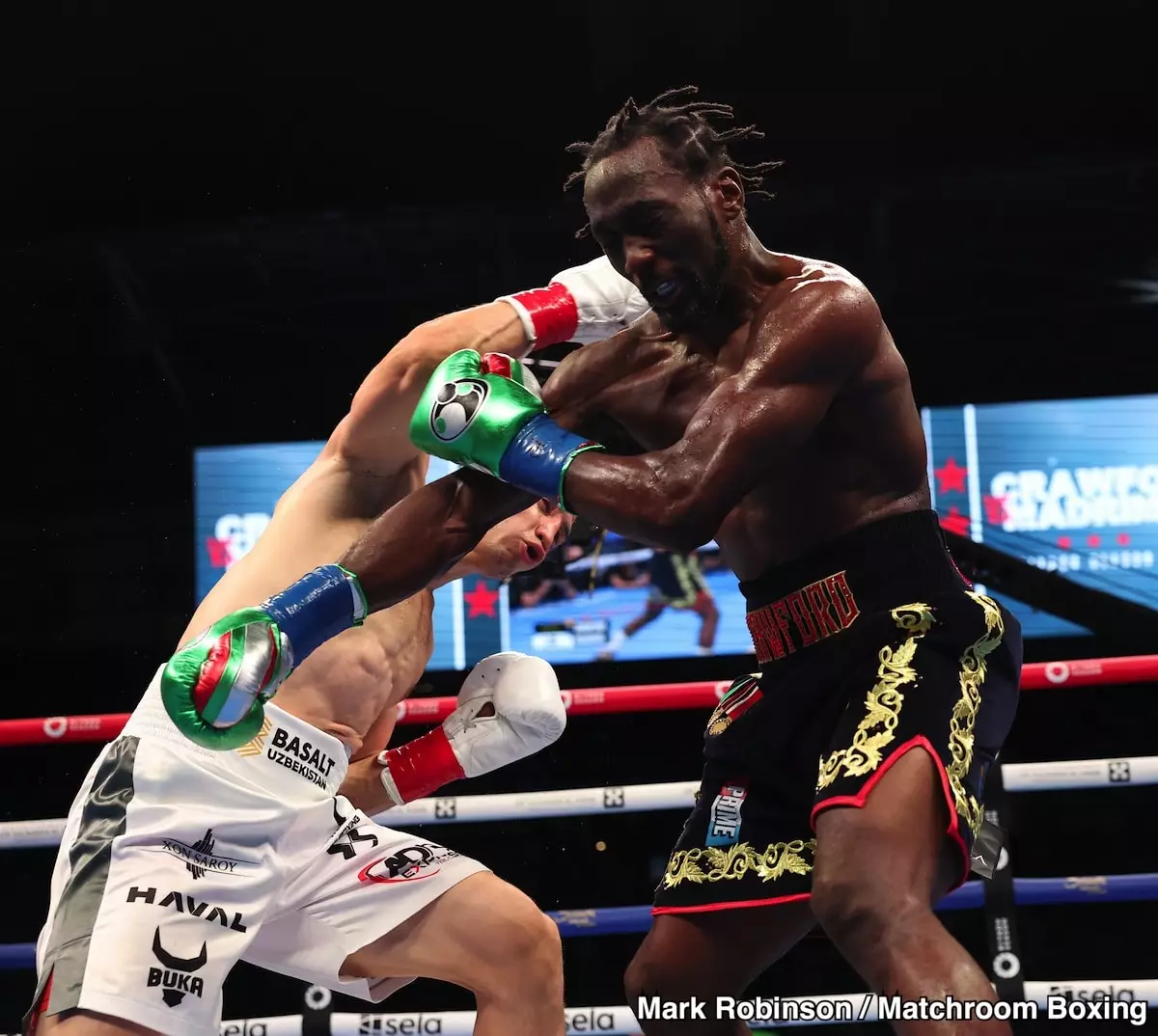In the high-stakes world of boxing, matchups often go beyond mere competition—they can become business decisions with profound implications for the fighters involved. A recent controversy highlights this dynamic, particularly surrounding the upcoming fight between Canelo Alvarez and Terence Crawford. With statements from Crawford’s promoter, Sampson Lewkowicz, there’s a clear divide between the promotional machinations and the integrity of sport, raising concerns for the health and future of Crawford, who at soon-to-be 38 years old, faces a daunting challenge in moving up two weight classes.
Lewkowicz’s criticism stems predominantly from his protective instincts for Crawford, showcasing a stark reality of boxing where financial considerations often eclipse the wellness of athletes. He expressed his apprehension regarding Crawford’s readiness for a fighter of Canelo’s caliber, specifically addressing the physical disparities that often come to a head in such matchups. The promotional ramp-up around Canelo, given his history of dismantling opponents much smaller than himself—think of his brutal knockout of Amir Khan—has left many in boxing, including Lewkowicz, worried about the potential outcome. When the health of athletes becomes secondary to promotional narratives and profit margins, the sport’s inherent spirit becomes compromised.
The phrase “business decision” gets thrown around frequently in boxing, but it takes on a chilling meaning when discussing the upcoming Alvarez versus Crawford bout. Lewkowicz views this showdown not as a duel between two elite fighters, but rather as a calculated financial opportunity. Canelo’s decision to face Crawford, a fighter who is not only moving up in weight but is also approaching the twilight of his career, underscores a troubling trend in boxing where marquee matchups knowingly lean towards the lucrative rather than the competitive. While passionate boxing fans herald traditional rivalries and the sporting integrity of matchups, the reality is that endorsements, pay-per-view sales, and sponsorships often dictate whom fighters face.
Moreover, the widely held belief among boxing aficionados is that genuine competition within the sport should take precedence. If fighters like Crawford wish to truly prove their skill, they must face opponents within their own weight class before leaping to challenges that appear primarily monetary. Lewkowicz’s assertion that Crawford should have to defeat fighters like Diego Pacheco or Caleb Plant before pursuing Canelo emphasizes an essential question: what does it mean to truly compete? If boxers select their opponents based on financial viability rather than fighting prowess, the sanctity of sport could decline.
Crawford’s impending bout against Canelo could hold grave consequences for his career. It is not merely the risk of losing a fight; it’s the potential for sustaining long-term damage. Lewkowicz is vocal about his fears, equating the situation with previous instances where he witnessed fighters suffer severe consequences due to mismatches in size and power. He evokes a feeling of dread about the outcome and aligns it with past instances of tragedy seen within the squared circle. It’s a reminder of the need for careful matchmaking, one that respects not only the sport’s competitive elements but also the safety of the athletes.
As boxing continues to navigate the balance between business and sport, the upcoming Alvarez versus Crawford fight stands out as a striking case of where these worlds collide. Lewkowicz’s hesitance to endorse this bout, and his candid concerns regarding Crawford’s health, stress that at the heart of the celebrated entertainment lies the undeniable fragility of the human body. Boxing lovers should approach this matchup with cautious eyes, realizing that while moments of glory can inspire, they must not overshadow the obligations of safety and respect inherent in the sport. The legacy of boxing lies not only in great fights but in the wisdom of prioritizing fighter health over financial gain.

